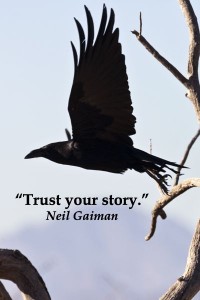Dear Integral Meditators,
The article below outlines a few points around how you can start to build genuine self confidence by learning to trust your mind, and gives a mindfulness exercise that you can use to begin a practical exploration of this area.
Mindfulness and meditation can give us temporary calm and relief from the continuous activity of our thinking mind, but if we are tempted to use it as a way of escaping from our mind then we should be wary.
Ideally mindfulness should be a way of gaining confidence and trust in our mind and ourself so that gradually our relationship to our thinking mind becomes more and more harmonious and mutually supportive; our thoughts support a healthy experience of self, and our sense of self encourages a reliable approach to thinking about our life experience.
Nathaniel Branden has in interesting definition of self-confidence, he says “Self confidence is confidence in the reliability of our mind as a tool of cognition…it is the conviction that we are genuinely committed to perceiving and honouring reality to the fullest extent of our volitional power.”
So, the long and the short of this is that in order to be genuinely and deeply self-confident, you need to learn to trust your mind, and use it as well as you are able within the limits of your ability.
Pseudo-self confidence
Quite a few people exert a lot of effort building pseudo self-confidence in order to disguise their fundamental lack of trust in their own mind and judgment. We might become very physically fit, or very wealthy, or have read all the right books about being a parent, have gained many educational certificates and degrees, or even become an expert meditator (and other examples ad infinitum) all as a way of building a buffer between ourself and our actual moment to moment experience of reality and life. Fundamentally we don’t trust our mind to be able to deal with it effectively; deep down we lack self-confidence, so we build buffers and things to hide behind.
Three mindful questions for building self-confidence and trust in your mind.
Take a situation in your life, perhaps something that you have experienced today. Ask yourself three questions in turn:
“What am I seeing and experiencing here”
“What is my mind telling me about what I am seeing and experiencing?”
“Am I honoring my own experience and mind here or am I turning away from it?”The answer to the third question will tell you whether you are using this activity and experience to build your self-confidence and trust in your own mind, or whether you are subverting it. As the old saying goes “Many drops of water slowly dripping into a pot will eventually make it full”; in our day by day journey to self-confidence, or to a lack of it, this saying rubs both ways.Generally the challenge here is not that we don’t know enough, but that we know more than we would like, and would rather avoid the responsibility of that knowledge.
© Toby Ouvry 2014, you are welcome to use or share this article, but please cite Toby as the source and include reference to his website www.tobyouvry.com












